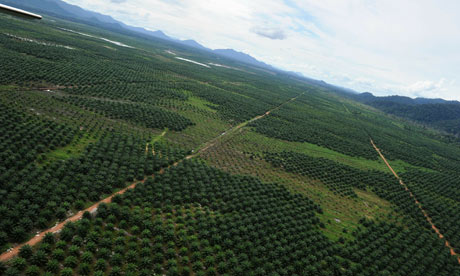Valery Giscard d'Estaing Boulevard
Building GANAMET
You are here : Home » News from the sector » The forecasts of Indonesian producers hindered by a new regulation
The forecasts of Indonesian producers hindered by a new regulation
A regulation of the Indonesian Ministry of Agriculture now imposes limits on the expansion of oil palm plantations. A decision that goes against previsions of oil palm companies.
The future of the palm oil industry will likely be uncertain this year due to a new regulation that came into effect last October, despite forecasts of favorable weather this year expected to increase output.
This year’s weather forecast estimates the industry’s output could be 8 percent higher than last year’s, reaching 28 million tons of crude palm oil (CPO).
But an agriculture ministerial regulation that came into effect on Oct. 2, 2013, has sparked controversy due to its stipulation that a company or a group is only allowed to own a maximum of 100,000 hectares of land for new oil palm plantations.
 State-owned enterprises, cooperatives and publicly listed companies, whose majority shares are owned by the public, are exempt from the limitation, according to the regulation.
State-owned enterprises, cooperatives and publicly listed companies, whose majority shares are owned by the public, are exempt from the limitation, according to the regulation.
“The government aims to have 40 million tons of palm oil produced by 2020, but the regulation will hinder us from making that happen,” Indonesian Palm Oil Producers Association (Gapki) secretary-general Joko Supriyono told The Jakarta Post recently.
He said that the industry produced only 26 million tons of CPO last year from 9 million hectares of oil palm plantations.
According to a Rabobank report published in 2012, palm oil-producing countries — such as Indonesia and Malaysia — need to expand their plantations by 640,000 hectares per year to meet the surge in global demand for CPO, which is expected to reach up to 68 million tons by 2020.
However, the Agriculture Ministry’s director general for plantations, Gamal Nasir, said the regulation was only aimed at guaranteeing equitable land ownership between large companies and smallholders.
Read more on The Jakarta Post.


